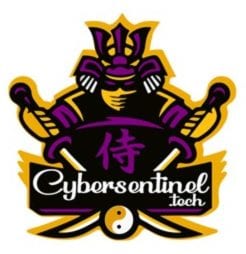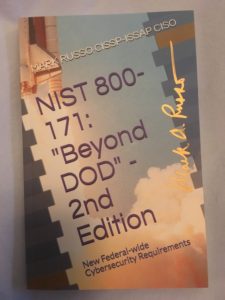CYBERLAW: STEVE JACKSON GAMES, INC., et. al., Plaintiff-Appellants, v. UNITED STATES SECRET SERVICE, et. al., Defendants, United States Secret Service

No. 93-8661
UNITED STATES COURT OF APPEALS FOR THE FOURTH DISTRICT
36 F.3d 457; 1994 U.S. App. LEXIS 30323
October 31, 1994, Decided
An interesting legal brief on “unauthorized distribution” of corporate Private Information from 1994
FACTS
In October 1988, the Director of Network Security Technology of a Bell Company affiliate began investigation of the unauthorized duplication and distribution of computer text files containing information about Bell’s emergency call system. In July 1989, the Director contacted USSS regarding “unauthorized distribution.”In 1990, the Director learned that the documents could be found on the Bulletin Board System (BBS) managed by an unknown employee of Steve Jackson Games (SJG). These items could be read and potentially deleted by the employee in question. A warrant was issued on February 28, 1990 to search SJG and the employee’s residence. This is SJG’s appeal pursuant to USSS’s violations of law.
ISSUES
Pursuant to the results of the warrant, did the USSS’s actions (seizing the BBS computer and the private emails) violate the Federal Wiretap Act (FWA) as Amended by Title I of the Electronic Communication Privacy Act (ECPA)? Additionally, the court reviewed the lower courts’ findings, and whether the USSS violated the Privacy Protection Act (PPA) and FWA Act as Amended by Title II of the ECPA; USSS did not contest these violations identified by the lower court.
RULES
- Privacy Protection Act (PPA), 42 U.S.C. §2000aa
USSS found in violation. SJG awarded damages of $51,040.
- Federal Wiretap Act as Amended by Title I of the Electronic Communication Privacy Act, 18 U.S.C. §§ 2510-252
The court found that USSS did not “intercept” the emails. The court established that the seizure of SJG’s BBS computer, on which there were stored private E-mails, but not read or retrieved, did not establish an “intercept” (18 U.S.C. §2511(1)(a))
- Federal Wiretap Act as Amended by Title II of the Electronic Communication Privacy Act, 18 U.S.C. §§ 2701-2711
USSS found in violation. SJG awarded damages for seizing stored electronic communications without complying with the statute.
ANALYSIS
The USSS wrongly seized a proprietary work product (the case only referenced one specific item) of a computer publisher, SJG, and violated the PPA. That seizure was not appropriate to its warrant and they failed to return it in a timely manner; it was “…not returned for several months” (Clifford, 2011, p.167).
Furthermore, the USSS violated the PPA when it conducted a “… search for [and seized] … work product materials possessed by a person reasonably believed to have a purpose to disseminate to the public a newspaper, book, broadcast, or other similar form of public communication, in or affecting interstate or foreign commerce” (Cornell University).
I strongly support the court here because: 1) the commercial nature of the document, i.e., specifically it seized SJG’s Generic Universal Roleplaying System (GURPS) which was a “work product” having potential financial value to the company; 2) that seizure prevented or damaged SJG’s ability to operate as a company impacting its current and potential future solvency; and 3) it would be a violation of the 4th Amendment because of the unlawful seizure of personal or intellectual property without due process.
With respect to Federal Wiretap Act as Amended by Title II of the Electronic Communication Privacy Act, the USSS destroyed unread private emails before accessed by the respective individuals. There would be no reason to delete such emails since they were the property of the intended recipients and their destruction was unwarranted. The USSS exceeded their authorization by preventing and deleting electronic transmissions that were in storage (§ 2701).
With respect to FWA, Title I, agree that the USSS did not affect an “intercept” by “seizing” the data stored on a hard drive pursuant to a proper warrant. The legal definition clearly requires two elements for intercept: 1) a current transmission of electronic data and, 2) the simultaneous act of monitoring and storage that would constitute an intercept. The outcome of the USSS gaining access of the data after transmission is no more than the “fruits” of a duly executed warrant.
The amended act includes the “intentional” (STEVE JACKSON GAMES, INC., et. al., Plaintiff-Appellants, v. UNITED STATES SECRET SERVICE, et. al., Defendants, United States Secret Service and United States of America, Defendants-Appellees, 1994, p.2) action of communication intercept of wire, oral and electronic record. The USSS did not intercept the communications because its acquisition of the contents were not contemporaneous (did not occur at the same time) as the transmission of the content in question.
CONCLUSION
The USSS wrongly seized a proprietary work product of a computer publisher, SJG, and violated the PPA. That seizure was not germane to its warrant and they failed to return it in a timely manner. The USSS violated the PPA when it seized a work product. I support the court because of the commercial nature of the documents which had nothing to do with the search for the Bell emergency call system information. Also, the seizure prevented or damaged SJG’s ability to operate as a company and ensure its own long-term fiscal solvency.
What I find most distressful is the destruction of the seized property, i.e., emails. I do not believe the “Founding Fathers” ever anticipated that the government would not only seize the property, but destroy it as well. My concern is that the destruction, while the Founders could not have imagined the act in the context of the modern computer age, would strongly condemn such an action. I would suggest that it in this case; this is a more grievous violation of the 4th Amendment than originally conceived.
Further, agree that the USSS grossly violated Federal Wiretap Act as Amended by Title II of the Electronic Communication Privacy Act. They destroyed unread private emails before accessed by intended recipients who had not only a right of privacy but a right to their mail; it is a federal crime to destroy “physical” United States mail, and email, and its destruction by anyone should also be considered a violation of law.
Finally, I support the court’s determination that the USSS did not affect an “intercept” by “seizing” the data stored on a hard drive pursuant to a proper warrant. An intercept requires a current and temporal transmission with an associated act of monitoring and storing that information. The act of the USSS to gain access to it after its transmission would be the same as any seizure of items proscribed by a proper search warrant.
REFERENCES
Clifford, R. ed. (2011). Cybercrime, the Investigation, Prosecution and Defense of Computer-Related Crimes. Durham: Carolina Academic Press.
Cornell University. (n.d.). 42 U.S. Code § 2000aa – Searches and seizures by government officers and employees in connection with investigation or prosecution of criminal offenses. Retrieved from Legal Information Institute (LII): http://www.law.cornell.edu/uscode/text/42/2000aa
STEVE JACKSON GAMES, INC., et. al., Plaintiff-Appellants, v. UNITED STATES SECRET SERVICE, et. al., Defendants, United States Secret Service and United States of America, Defendants-Appellees, 93-8661 (US Court of Appeals for the 5th District October 31, 1994).

Dr. Russo is currently the Senior Data Scientist with Cybersenetinel AI in Washington, DC. He is a former Senior Information Security Engineer within the Department of Defense’s (DOD) F-35 Joint Strike Fighter program. He has an extensive background in cybersecurity and is an expert in the Risk Management Framework (RMF) and DOD Instruction 8510, which implement RMF throughout the DOD and the federal government. He holds a Certified Information Systems Security Professional (CISSP) certification and a CISSP in information security architecture (ISSAP). He has a 2017 Chief Information Security Officer (CISO) certification from the National Defense University, Washington, DC. Dr. Russo retired from the US Army Reserves in 2012 as a Senior Intelligence Officer.











